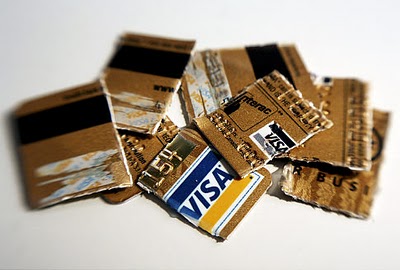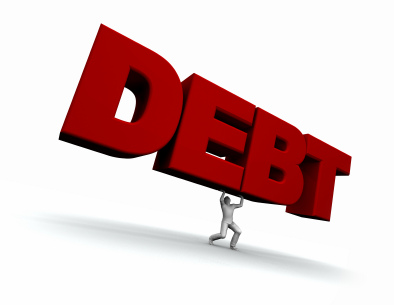 1. Get a copy of your credit reports. You can't start to improve your credit until you know exactly what you need to work on. Your credit report includes a list of the accounts that are hurting your credit score. Get a copy of your credit report from each of the three major credit bureaus to find out which accounts need work and which are just fine. You can get a free credit report from AnnualCreditReport.com.
1. Get a copy of your credit reports. You can't start to improve your credit until you know exactly what you need to work on. Your credit report includes a list of the accounts that are hurting your credit score. Get a copy of your credit report from each of the three major credit bureaus to find out which accounts need work and which are just fine. You can get a free credit report from AnnualCreditReport.com.
2. Dispute a credit report error. If your credit report contains errors, you have the right to have them removed by writing to the credit bureau or the creditor who listed the account on your credit report. Errors can hurt your credit score more than you think. For example, an inaccurately reported late payment could bring your credit score down 60 to 110 points depending on the other information in your credit report.
3. Avoid new credit card purchases. New credit card purchases will raise your credit utilization - the ratio between your credit card balances and your credit limit. The higher your balances are, the more your credit score is affected. So, pay cash for purchases instead of putting them on your credit card. Even better, if you can avoid the purchase completely, you can use that money to reduce your credit card balance. Lowering your balances helps improve your credit score.
4. Pay off a past due balance. Your payment history makes up 35% of your credit score. The further behind you are on your payments, the more it hurts your credit score. If you have the money, get caught up on your credit card payments before they are charged-off or sent to a collection agency. Talk to your credit card issuer about your missed payments. They may be willing to re-age your account so your credit report shows your account has always been paid on time.
5. Avoid a new credit card application. As long as you're in credit repair mode, you should avoid making any new applications for credit since credit inquiries can hurt your credit score. Opening a new credit account also lowers your average credit age, another action that hurts your credit score.
6. Leave accounts open, especially those with balances. You might be tempted to close credit card accounts that have become delinquent, but wait. Before you close any account make sure it won't negatively affect your credit. For example, closing a credit card with a balance can hurt your credit score if the lender also stops reporting your credit limit. It's very rare that closing a credit card will improve your credit score.
7. Make contact with your creditors. Right now they're certainly the last people you want to talk to, but you'd be surprised at the help you might receive if you call your credit card issuer. If you're having trouble, talk to your creditors about your situation. Many of them have temporary hardship programs that will reduce your monthly payments until you can get back on your feet.
8. Pay off a debt. The amount of debt you're carrying is 30% of your credit score. You'll have to start paying off your debts to improve yourcredit situation. If you don't have the money on hand, sell some of your belongings to speed upthe process. It will be a sacrifice, but the financial freedom you gain - and the credit score points you gain - will be worth it.
 9. Get professional help. Resources, like consumer credit counseling, are available to assist you. If you are overwhelmed by your credit situation, seek professional assistance. You can locate a credit counseling agency through the National Foundation for Credit Counseling. Your credit card billing statements now include the number to credit counseling agencies that can help you.
9. Get professional help. Resources, like consumer credit counseling, are available to assist you. If you are overwhelmed by your credit situation, seek professional assistance. You can locate a credit counseling agency through the National Foundation for Credit Counseling. Your credit card billing statements now include the number to credit counseling agencies that can help you.
10. Be patient and persistent. Patience isn't a factor that's used to calcalate your credit score, but it's something you need to have while you're repairing your credit. Your credit wasn't damaged overnight, so don't expect it to improve in that amount of time. Continue paying your debts on time each month and over time you will see your credit score improve.


